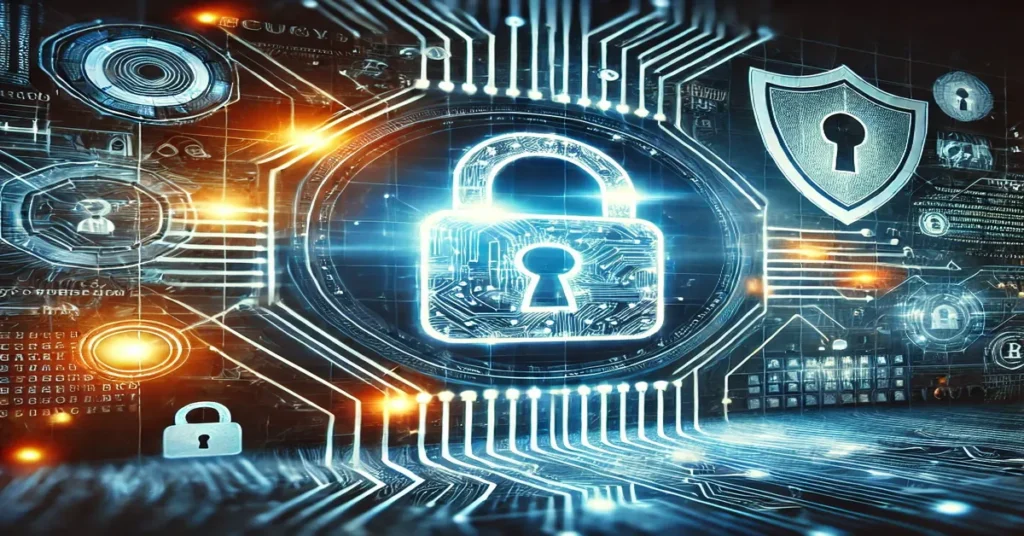The digital age has revolutionized the way we communicate, share information, and maintain privacy online. One term that often surfaces in discussions about online privacy and security is anonin. Whether you’re a tech enthusiast, a privacy advocate, or someone who simply wants to protect their personal information, anonin is a concept worth exploring. It represents a broader trend of tools, techniques, and philosophies aimed at maintaining anonymity and safeguarding data in an increasingly interconnected world.
In this article, we’ll dive into the meaning and significance of ano-nin, examining its applications, the importance of digital privacy, and how it impacts individuals and organizations. We’ll also explore how tools like ano-nin can empower users to take control of their digital footprints, minimize risks, and navigate the complexities of the online environment with confidence.
What is Anonin?
At its core, anonin refers to anonymity, specifically in the digital realm. It encompasses the practices, tools, and strategies designed to protect a user’s identity, data, and online activities from being tracked, monitored, or exploited. In an era where every click, search, and interaction is potentially logged, ano-nin serves as a crucial line of defense for those who value their privacy.
Key Features of Anonin
- Identity Protection: Prevents the exposure of personal details such as names, addresses, and IP addresses.
- Data Security: Encrypts communications to prevent unauthorized access or interception.
- Freedom of Expression: Allows users to speak freely without fear of retaliation or surveillance.
- Minimized Tracking: Limits the ability of corporations and governments to monitor user behavior.
Why is Anonin Important?
The rise of cyber threats, data breaches, and invasive tracking practices has made privacy a top priority for many. Tools and practices related to ano-nin empower individuals to reclaim their digital autonomy, ensuring that sensitive information remains confidential and secure.
The Growing Need for Anonin in a Digital World
As technology advances, so do the methods used to track, monitor, and exploit online activities. From targeted advertising to large-scale data breaches, the risks associated with a lack of digital privacy are numerous. Here’s why anonin has become a necessity:
1. The Rise of Data Collection
Tech companies collect vast amounts of data to optimize their services and target users with personalized ads. While this can enhance user experience, it also raises significant privacy concerns. Ano-nin tools and practices help users minimize the amount of data they inadvertently share.
2. Increasing Cyber Threats
Cyberattacks, phishing scams, and identity theft are more prevalent than ever. By prioritizing ano-nin, individuals can reduce their vulnerability to such threats.
3. Censorship and Surveillance
In many parts of the world, government censorship and surveillance limit free expression. Anonin provides a way for individuals to communicate and share information without fear of repercussions.
4. Ethical Concerns
The use of personal data without consent raises ethical questions. Ano-nin practices align with the principle that individuals should have control over their own information.
How Anonin Tools Work
A wide range of tools and technologies fall under the umbrella of ano-nin. These tools are designed to protect user privacy, enhance security, and enable anonymous interactions online.
1. Virtual Private Networks (VPNs)
VPNs encrypt a user’s internet connection, masking their IP address and making it difficult for third parties to track their online activities. VPNs are one of the most popular tools for achieving ano-nin.
2. Tor Browser
The Tor Browser routes internet traffic through a network of servers, making it nearly impossible to trace the user’s identity or location. It is widely used by those seeking a high level of anonymity.
3. Encrypted Messaging Apps
Apps like Signal and Telegram offer end-to-end encryption, ensuring that messages remain private and secure.
4. Anonymous Email Services
Services like ProtonMail allow users to send and receive emails without revealing their identity, a critical aspect of ano-nin.
5. Privacy-Focused Search Engines
Search engines like DuckDuckGo prioritize user privacy by not tracking search queries or collecting data.
6. Disposable Phone Numbers and Email Addresses
Temporary phone numbers and email addresses are useful for registering for services without revealing personal details.
The Benefits of Embracing Anonin
Incorporating ano-nin practices into your digital routine can yield numerous benefits, ranging from enhanced security to increased peace of mind.
1. Improved Security
By using tools that prioritize anonin, you reduce the risk of data breaches and cyberattacks. Hackers cannot exploit what they cannot access.
2. Greater Freedom
With ano-nin, you can browse the internet, express your opinions, and communicate freely without fear of surveillance or censorship.
3. Enhanced Privacy
Anonin ensures that personal data remains private, preventing corporations and governments from exploiting it for their own gain.
4. Ethical Data Usage
By limiting the information you share, you contribute to a more ethical digital ecosystem where user data is treated with respect.
Challenges and Criticisms of Anonin
While ano-nin offers significant advantages, it is not without its challenges and criticisms. Understanding these issues is essential for making informed decisions about its use.
1. Misuse by Criminals
The same tools that provide anonymity to law-abiding users can be exploited by criminals to carry out illegal activities. This has led to debates about the ethical implications of anonin.
2. Accessibility
Some ano-nin tools require technical knowledge or come with subscription fees, making them less accessible to the average user.
3. Slower Speeds
Certain tools, like VPNs or the Tor Browser, can slow down internet speeds due to the additional layers of encryption and routing.
4. False Sense of Security
While ano-nin tools enhance privacy, they are not foolproof. Users must remain vigilant and practice good digital hygiene.
How to Incorporate Anonin into Your Daily Life
Achieving ano-nin doesn’t require an overhaul of your digital habits. Here are simple steps you can take to enhance your privacy and security:
1. Start with a VPN
A reliable VPN is an excellent first step toward anonin. Choose a service with strong encryption, no-logs policies, and global server coverage.
2. Use Privacy-Focused Browsers and Search Engines
Switch to browsers like Brave or Firefox and search engines like DuckDuckGo to reduce tracking and data collection.
3. Limit Information Sharing
Be mindful of the information you share online. Avoid oversharing on social media and use pseudonyms when possible.
4. Secure Your Devices
Ensure that your devices are protected with strong passwords, antivirus software, and regular updates.
5. Educate Yourself
Stay informed about the latest privacy tools and best practices. Knowledge is a powerful tool for achieving ano-nin.
The Future of Anonin
As technology continues to evolve, so will the methods used to protect privacy and achieve anonin. Emerging trends like blockchain technology, decentralized networks, and advancements in encryption are poised to reshape the landscape of digital privacy.
1. Blockchain for Privacy
Blockchain technology has the potential to enhance anonin by enabling decentralized, secure, and transparent data transactions.
2. AI and Machine Learning
While AI is often associated with data collection, it can also be used to develop smarter, more effective privacy tools.
3. Increasing Awareness
Public awareness about privacy issues is growing, driving demand for better anonin solutions and more ethical digital practices.
Conclusion
In an age where data is often referred to as the new oil, anonin is more important than ever. By understanding its significance and incorporating its principles into your digital routine, you can protect your identity, enhance your security, and reclaim control over your online presence. Whether you’re a casual internet user or a privacy enthusiast, anonin offers valuable tools and strategies for navigating the digital world with confidence.
Read: Drudgery 7 Little Words: Overcoming Everyday Challenges
FAQs
1. What does “anonin” mean?
Anonin refers to anonymity, particularly in the digital space. It encompasses tools and practices that protect privacy and prevent tracking.
2. How can I achieve anonin online?
You can achieve anonin by using tools like VPNs, Tor Browser, encrypted messaging apps, and privacy-focused search engines.
3. Are anonin tools legal?
Yes, most anonin tools are legal and widely used to enhance privacy. However, their misuse for illegal activities is prohibited.
4. Is anonin necessary for everyone?
While not everyone may feel the need for complete anonymity, incorporating basic anonin practices enhances security and reduces risks.
5. What are the risks of not using anonin tools?
Without anonin, you’re more vulnerable to data breaches, identity theft, targeted advertising, and surveillance.
6. Can anonin tools guarantee 100% privacy?
No tool can guarantee absolute privacy, but anonin tools significantly reduce the risks and enhance your overall security.







